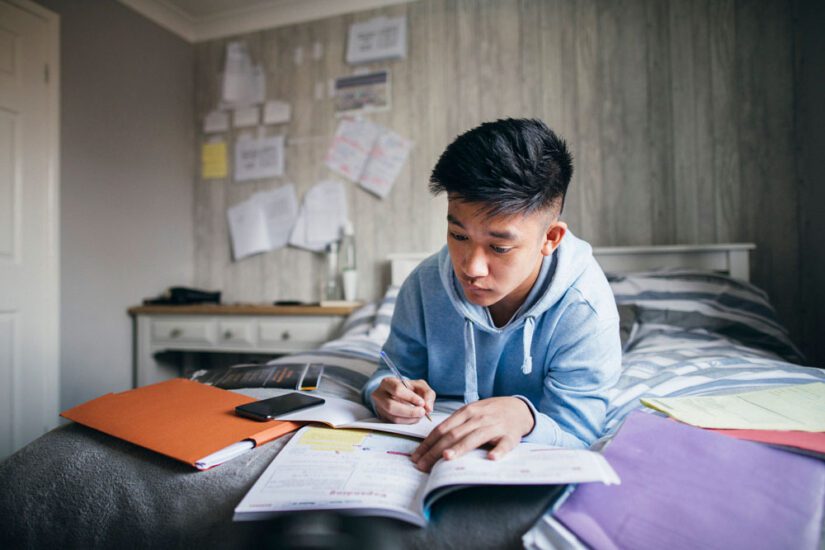For many students, homework can be a daunting task. Some students dread having to spend long hours on their nightly assignments, and it’s easy to procrastinate instead of getting started. We’ve got some helpful tips on how to work more efficiently on your nightly assignments. Here’s how to spend less time on homework (but still get the most out of it)!
1. Prioritize your responsibilities. Decide which tasks are time sensitive or need to be completed by a given date, and work on those first. It’s always a good idea to prioritize your responsibilities! In Tutor Doctor’s X-Skills Program, these are referred to as “Alpha” and “Beta” tasks. By dedicating your time to your bigger obligations first, you’ll avoid having to rush when important assignments are due.
2. Organize your materials. Keeping your materials neat and organized contributes drastically towards your homework efficiency. If you have your class materials separated and easily identifiable, you’ll never misplace an assignment or have trouble finding your notes. For more great organization tips, check out our blog “Tutor Doctor’s Tips to Get Organized at School.”
3. Pace yourself. Work on your assignments gradually – especially the big ones! You should always try to avoid putting yourself in situations where you’re racing against the clock. Cramming for an exam is never a good idea. This is referred to as massed practice, and it’s not an effective method of studying. Rather, break up your large tasks into chunks (known as spaced practice). By doing a little bit at a time, you’ll retain much more information and will spend less time studying in the long run.
4. Take breaks. Try to avoid locking yourself in your room for a multi-hour homework session. Some students do this because they want to finish as quickly as possible (the “let’s get it over with” mentality). However, if you take small breaks in between, you’ll save yourself from dealing with mental fatigue and you’ll actually get done faster. Even better, have a healthy snack before going back to your assignments!
5. Seek additional resources. If you find yourself struggling with a particular concept or class, find out if your teachers or school offers additional help. Many schools offer supplemental assistance – study groups, for instance, are a great way to gain clarity into a subject while also learning to work together with other classmates.
6. Finish what you can. If you have a lot of little assignments to complete, do the easy ones first. Although it may seem appealing to get the hard ones out of the way and save the easy assignments for last, you might feel “burnt out” after you get the difficult tasks done. Instead of risking motivation loss, work on the easy problems and assignments first (this is a good test taking strategy as well). Then, use the remaining time to tackle more difficult tasks.
7. Remind yourself of the purpose of homework. Although this may seem rather obvious, it can be easy to forget that homework isn’t supposed to be a test of your abilities. Homework is meant to be practice, and making mistakes is perfectly okay. Some students get hung up trying to avoid errors, but this really isn’t homework’s purpose. Rather, the vast majority of teachers are looking at a student’s attempts and efforts when grading homework assignments.
8. Work with a tutor. Having a tutor is like an academic coach – we map out the plays, the schedules, and the practice drills. The tutors we work with strive to make each session as efficient as possible, coming prepared with lesson plans and supplemental material. Tutors are experts at maximizing efficiency! Many students are surprised to find that what they were able to get done in 3 hours can be accomplished in 1 hour with a great tutor. Our goal is to teach these executive function skills to students so that in the future they can use these techniques themselves!




